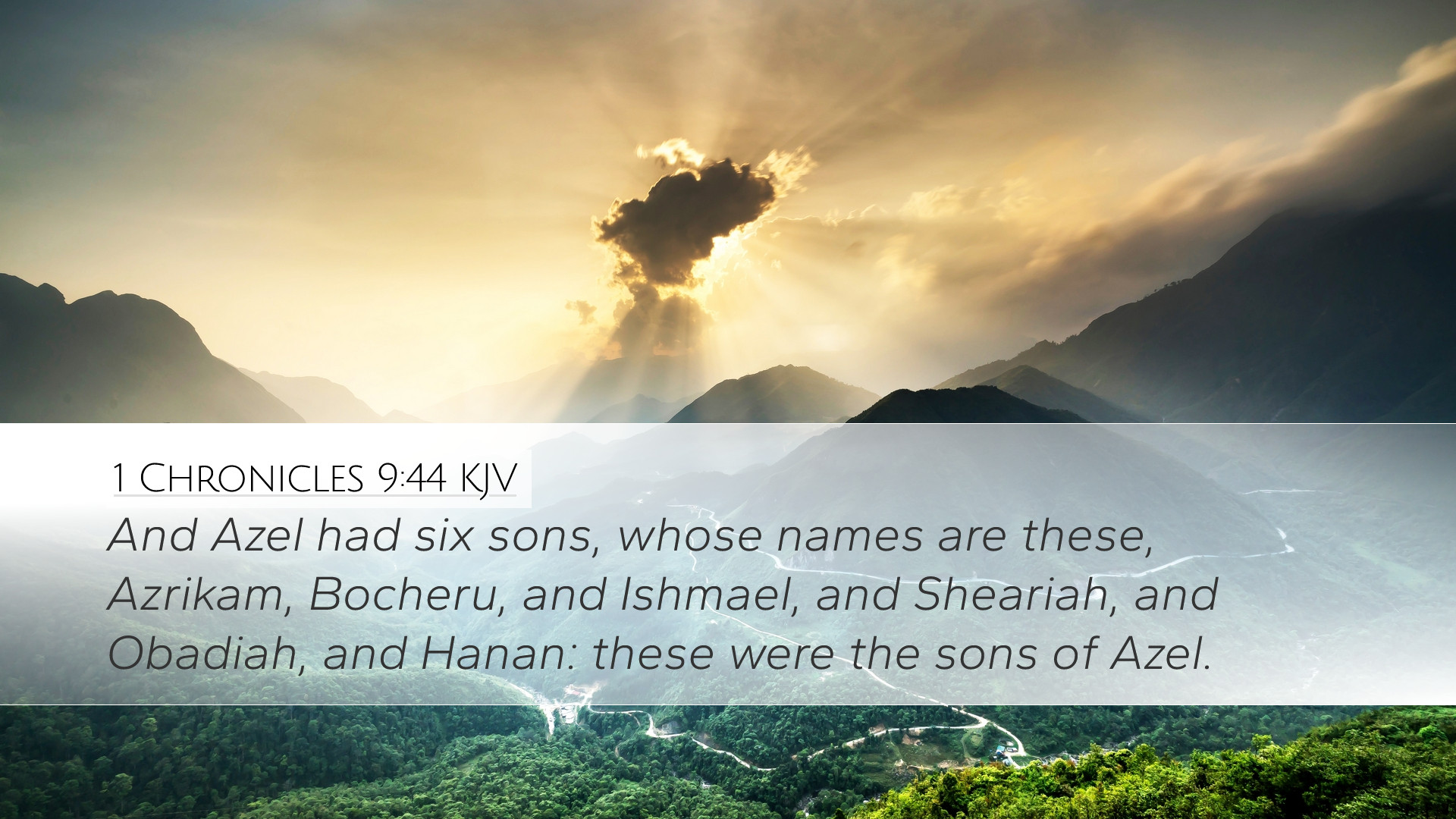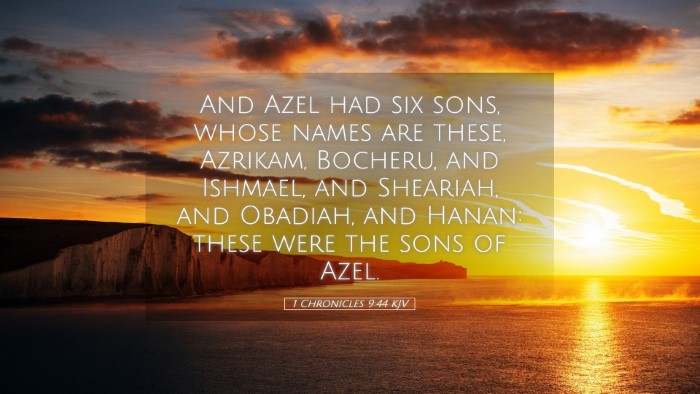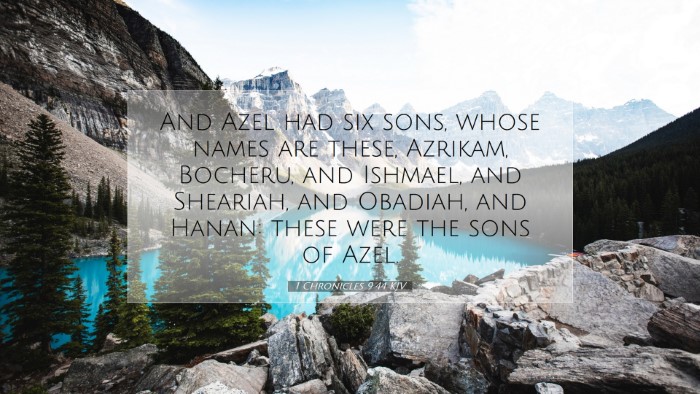Commentary on 1 Chronicles 9:44
Verse Context: 1 Chronicles 9:44 states, “And the sons of Jonathan; Merib-baal; and Merib-baal begat Micah.” This simple genealogical reference provides layers of historical, theological, and practical insights into the lives of the individuals mentioned as well as the broader implications for understanding the heritage of Israel.
Genealogical Significance
Matthew Henry Commentary: Matthew Henry emphasizes the importance of genealogy in the biblical narrative, asserting that such details serve to maintain the identity of the Israelite people. This verse not only identifies Merib-baal (the son of Jonathan and grandson of King Saul) but also connects to the larger theme of God's promise and covenantal faithfulness. In a culture that revered family lines, such mentions remind readers that God's plans unfold through families.
Exploration of Names
- Merib-baal: The name 'Merib-baal' means “the revenger of Baal.” This reflects a period in Israel’s history where fidelity to God was paramount; the names often served a theological purpose.
- Micah: The mention of Micah as the successor bears significant implications regarding the continuity of Davidic lineage and how God preserved His covenant through successive generations.
Theological Implications
Albert Barnes Commentary: Barnes highlights the fact that even in the genealogical record, the underlying theme is that of God's sovereign selection and grace. The transition from Jonathan's lineage through Merib-baal to Micah exemplifies how God’s covenantal promises extend beyond mere physical lineage into the purpose-filled lives of individuals who, though imperfect, remain part of His narrative.
God's Covenant Through Generations
This verse symbolizes God's enduring promise to King David and his descendants. Despite the tumultuous history surrounding Saul’s reign and the ensuing chaos post-Saul’s death, the continuity of the lineage through Jonathan's son serves to reassure the Jewish people that the messianic expectation remains intact. The critical lens through which we interpret this passage reveals a God who does not abandon His people.
Application for Today
Adam Clarke Commentary: Clarke's insight rounds out the interpretation with practical application. He notes that the genealogical records often inspire present-day believers to reflect on their own heritage in faith. Each name, each connection serves as a reminder that the Christian faith is not merely a spiritual journey but also a communal one rooted in history.
Lessons for Modern Believers
- Value of Heritage: The significance of one’s spiritual lineage can inspire modern believers to honor the past while actively engaging in their faith.
- Blend of Human Agency and Divine Providence: Just as Merib-baal and Micah played their parts in the unfolding story of Israel, believers today are also called to participate in God’s ongoing story.
- Encouragement in Struggles: Reflecting on the complexities of these genealogies reminds us that struggles, failures, and victories are all part of God’s sovereign plan.
Reflections on Divine Providence
In conclusion, 1 Chronicles 9:44 serves as a microcosm of God’s redemptive history. It not only delineates a line of descent but also richly interweaves themes of promise, preservation, and purpose. This insight invites pastors, students, theologians, and scholars to reflect on their roles within God’s greater narrative. The inclusion of this verse in the text is a reminder of the faithfulness of God throughout history, encouraging the acknowledgement of both the highs and lows of the human experience as part of His divine tapestry.


